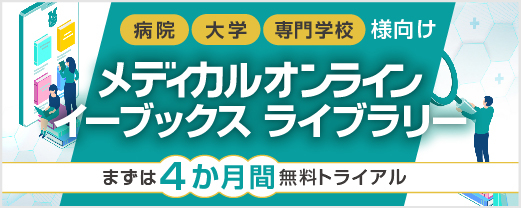アブストラクト
| Title | 認知症 |
|---|---|
| Subtitle | 特集 / リハビリテーション医療の現場で知っておきたい精神科関連の実践的知識 |
| Authors | 吉村匡史*1, 山下円香*2 |
| Authors (kana) | |
| Organization | *1関西医科大学リハビリテーション学部作業療法学科, 教授, *2同, 助教 |
| Journal | MB Medical Rehabilitation |
| Volume | |
| Number | 297 |
| Page | 20-25 |
| Year/Month | 2024 / 2 |
| Article | 報告 |
| Publisher | 全日本病院出版会 |
| Abstract | 「Abstract」日本における認知症への取り組みに関して, 2023年に2つの大きな動きがあった. 1つは認知症基本法の成立であり, これによって認知症の方と認知症を持たない国民が共生する社会を実現すること, 認知症の人の尊厳を守ることが法律で担保された. もう1つは世界初の認知症の根本治療薬であるレカネマブの承認である. 本薬剤は軽度のアルツハイマー型認知症と軽度認知障害(MCI)が適応となり, これによって認知症および軽度認知障害の方への対応に関して改めて注目が集まっている. 本稿においては薬物治療に関する記載は誌面の都合上, 他稿に譲ることとしたが, 認知症基本法, 認知症の代表的な原因疾患(4大認知症), 認知症の方への対応の注意点, 特に軽度の認知症の方を対象としたリハビリテーションに関して概説する. |
| Practice | 医療技術 |
| Keywords | 認知症(dementia), 認知症基本法(the basic law dealing with dementia), 誤りなし学習(errorless learning), 試行錯誤学習(trial-and-error learning), エブリデイテクノロジー(everyday technology) |
- 全文ダウンロード: 従量制、基本料金制の方共に968円(税込) です。
参考文献
- 1) World Health Organization: International Statistical Classification of Diseases and Related Health Problems 10th Revision. World Health Organization, 1993.
- 2) American Psychiatric Association: Diagnostic and statistical manual of mental disorders, Fifth Edition (DSM-5(R)). American Psychiatric Association, 2013.
- 3) 新井平伊:4大認知症疾患の臨床的重要性-なぜ4疾患を取り上げたか?-.精神科治療, 22:1345-1349, 2007.
- 4) McKeith IG, et al. Diagnosis and management of dementia with Lewy bodies: Fourth consensus report of the DLB Consortium. Neurology, 89:88-100, 2017.
- 5) 永田久美子:認知症の人のケア. Brain Med, 25:65-73, 2013.
残りの21件を表示する
- 6) Menon V: Large-scale brain networks and psychopathology: a unifying triple network model. Trends Cogn Sci, 15(10), 483-506, 2011.
- 7) Fox MD, Raichle ME: Spontaneous fluctuations in brain activity observed with functional magnetic resonance imaging. Nat Rev Neurosci, 8(9):700-711, 2007.
- 8) Sestieri C, et al: Episodic memory retrieval, parietal cortex, and the default mode network: functional and topographic analyses. J Neurosci, 31(12):4407-4420, 2011.
- 9) Cocchi L, et al: Dynamic cooperation and competition between brain systems during cognitive control. Trends Cogn Sci, 17(10):493-501, 2013.
- 10) Fair DA, et al: The maturing architecture of the brain's default network. Proc Natl Acad Sci U S A, 105(10):4028-4032, 2008.
- 11) Mevel K, et al: Age effect on the default mode network, inner thoughts, and cognitive abilities. Neurobiol Aging, 34(4):1292-1301, 2013.
- 12) Staffaroni AM, et al: The Longitudinal Trajectory of Default Mode Network Connectivity in Healthy Older Adults Varies As a Function of Age and Is Associated with Changes in Episodic Memory and Processing Speed. J Neurosci, 38(11):2809-2817, 2018.
- 13) Wang J, et al: Disrupted functional brain connectome in individuals at risk for Alzheimer's disease. Biol Psychiatry, 73(5):472-481, 2013.
- 14) Dennis EL, Thompson PM: Functional brain connectivity using fMRI in aging and Alzheimer's disease. Neuropsychol Rev, 24(1):49-62, 2014.
- 15) Petersen RC: Mild cognitive impairment as a diagnostic entity. J Intern Med, 256(3):183-194, 2004.
- 16) Shimada H, et al: Conversion and Reversion Rates in Japanese Older People With Mild Cognitive Impairment. J Am Med Dir Assoc, 18(9):808. e1-808. e6, 2017.
- 17) Baddeley A: Working memory. Curr Biol, 20(4):136-140, 2010.
- 18) Parker G, et al: Rehabilitation of memory disorders in adults and children. Wilson BA, et al (Eds.), Neuropsychological Rehabilitation: The International Handbook (1st ed), 196-206, Routledge, 2017.
- 19) Yamashita M, et al: Functional network activity during errorless and trial-and-error color-name association learning. Brain Behav, 10(8):e01723, 2020.
- 20) Yamashita M, et al: Age-related learning difficulty through trial-and-error method associated with decreased default mode network integration in healthy middle-aged adults. J Clin Exp Neuropsychol, 45(4):433-442, 2023.
- 21) Anderson ND, Craik FI: The mnemonic mechanisms of errorless learning. Neuropsychologia, 44(14):2806-2813, 2006.
- 22) Dunn J, Clare L: Learning face-name associations in early-stage dementia: Comparing the effects of errorless learning and effortful processing. Neuropsychol Rehabil, 17(6):735-754, 2007.
- 23) Tsutsumimoto K, et al: Subjective Memory Complaints are Associated with Incident Dementia in Cognitively Intact Older People, but Not in Those with Cognitive Impairment: A 24-Month Prospective Cohort Study. Am J Geriatr Psychiatry, 25(6):607-616, 2017.
- 24) 種村留美ほか:高次脳機能障害に対するAssistive Technologyによる支援.高次脳機能研, 36(3):384-391, 2016.
- 25) Malinowsky C, et al: Differences in the use of everyday technology among persons with MCI, SCI and older adults without known cognitive impairment. Int Psychogeriatr, 29(7):1193-1200, 2017.
- 26) Holthe T, et al: Digital Assistive Technology to Support Everyday Living in Community-Dwelling Older Adults with Mild Cognitive Impairment and Dementia. Clin Interv Aging, 17:519-544, 2022.



